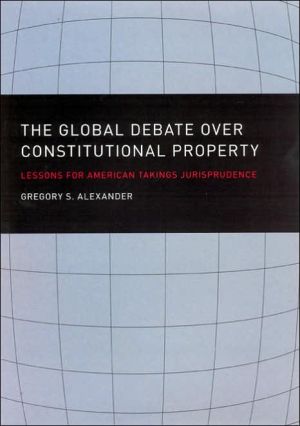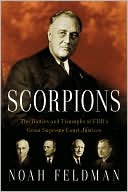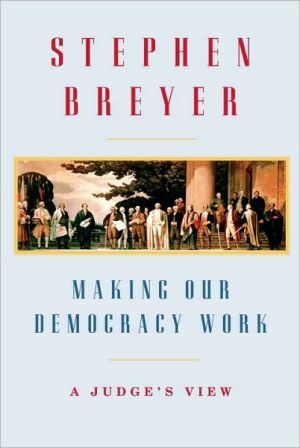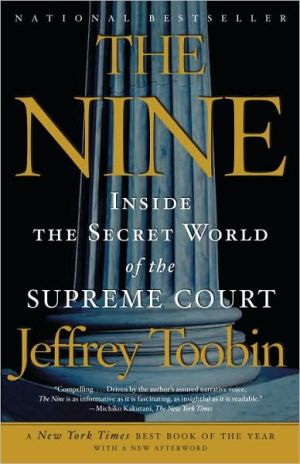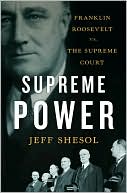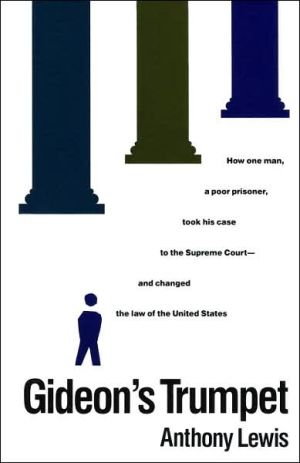Global Debate over Constitutional Property: Lessons for American Takings Jurisprudence
Countries around the world are heatedly debating whether property should be a constitutional right. But American lawyers have largely ignored this debate, which is divided into two clear camps: those who believe making property a constitutional right undermines democracy by fostering inequality, and those who believe it provides the security necessary to make democracy possible. In The Global Debate over Constitutional Property, Gregory Alexander recasts this discussion, arguing that both...
Search in google:
Countries around the world are heatedly debating whether property should be a constitutional right. But American lawyers have largely ignored this debate, which is divided into two clear camps: those who believe making property a constitutional right undermines democracy by fostering inequality, and those who believe it provides the security necessary to make democracy possible. In The Global Debate over Constitutional Property, Gregory Alexander recasts this discussion, arguing that both sides overlook a key problem: that constitutional protection, or lack thereof, has little bearing on how a society actually treats property. A society’s traditions and culture, Alexander argues, have a much greater effect on property rights. Laws must aim, then, to change cultural ideas of property, rather than deem whether one has the right to own it. Ultimately, Alexander builds a strong case for improving American takings law by borrowing features from the laws of other countries—particularly those laws based on the idea that owning property not only confers rights, but also entails responsibilities to society as a whole. Law & Politics Book Review "To say that [Alexander's book] is an important and intreesting work would be a gross understatement. The questions of whether (and how) to grant constitutional status to the right of property, and how courts ought to interpret such provisions, raise core issues in contemporary constitutionalism and political economic development. . . . The breadth and depth of coverage and analysis, combined with its thoughtful and provocative arguments, render this book a highly stimulating and informative read."—Michael C. Evans, Law & Politics Book Review— Michael C. Evans
The Global Debate over Constitutional Property \ Lessons for American Takings Jurisprudence\ \ By GREGORY S. ALEXANDER The University of Chicago Press \ Copyright © 2006 The University of Chicago\ All right reserved.\ ISBN: 978-0-226-01298-8\ \ \ \ Chapter One \ The Formalist Trap: Text and Tradition in the Interpretation of Constitutional Property Clauses\ Property occupies an uneasy position in the constellation of the constitutional interests of democratic societies throughout the world. Constitutional political rights such as free speech and freedom of association are relatively (although not universally) uncontroversial, but no such certainty exists about economic rights, notably the right to private property. The lack of anything close to a global consensus about property as a constitutional right has become apparent in recent years as new democracies have written new constitutions and some established democracies have revised existing ones.\ To be sure, the constitutions of most democracies throughout the world do contain property clauses, but several advanced democracies with written constitutions or a charter of rights do not. India, whose original postcolonial constitution expressly protected property, entirely expunged a property clause from its constitution after several years' experience. Postapartheid South Africa's constitution contains aproperty clause, but the decision to include it came only after an extended and heated debate. In Singapore, a country with a strong commitment to free markets, the rights to own property and to receive fair compensation for state expropriations were deliberately omitted from the postindependence constitution. The same is true of New Zealand and Canada, two countries that have no written constitution but do have a written bill of rights that entrenches individual rights. Property was deliberately omitted from New Zealand's Bill of Rights in 1990 and from Canada's Charter of Rights in 1982. Underscoring the point, property nowhere appears in Franz Wieacker's "basic inventory" of rights accepted by "most western countries" as of 1989.\ Why this hesitation to include property as a constitutional right? From an American perspective, it might seem natural to include property in the scheme of constitutionally protected interests of any nation that is committed to a private property/free market system. Private law in all market-based societies takes private property rights seriously, at least as seriously as is feasible, given the complications that rapidly increasing complexity both in the economies and societies of advanced countries create for their private law regime. But private law can only do so much by way of protecting private property. A property rights advocate might suppose that in countries that respect private property rights constitutional protection would be a logical complement to private law's protection of individual property interests. Why, then, is there any controversy about the inclusion of a clause expressly protecting private property in the constitutions of countries with free market /private property economic systems?\ At least part of the answer, as I will argue in this chapter, is that both sides of the debate over property as a constitutional right are victims of what I will call "the formalist trap." In the context of the property clause issue, the formalist trap is the assumption or claim that without constitutional protection, property rights are unlikely to enjoy the degree of security and stability that is necessary for a properly functioning liberal democracy as well as for an efficient free market economy. Stated differently, the claim, which frequently is left implicit in arguments about constitutionalizing property, is that the degree of legal protection that extant property holdings within a society enjoy is strongly affected by the existence or absence of a property clause in that country's constitution. Hence, in a liberal democracy whose written constitution expressly guards against uncompensated state expropriations, extant property holdings are likely, by virtue of that formal constitutional guarantee, to enjoy a high degree of security and stability. And, because of the materially higher degree of security of individual holdings, such democracies are likely to enjoy a comparatively greater degree of economic development and more robust citizenship. Conversely, in a democracy that has not made property a constitutional or entrenched right, property holdings are likely to be unstable or insecure. Concomitantly, such a society is less apt to be one that is characterized by a robust civic life.\ To be clear about the formalist trap, no one, at least as far as I am aware, asserts that constitutional status is either a necessary or a sufficient condition for stable and secure legal property rights. The claim is weaker than that, but it is still strong. It is usually framed as a probabilistic claim, but occasionally the claim is stated in even bolder terms. Cass Sunstein, for example, in discussing inclusion of a constitutional property clause like the American takings clause in new constitutions, gives an especially clear example of a relatively strong version of the core formalist trap claim. He states, "A provision of this general sort is indispensable on both economic and democratic grounds. Without such a provision, there is not, in fact or in law, a fully functioning system of private property." Elsewhere Sunstein states,\ The right to constitutional protection of private property has a strong democratic justification: If people's holdings are subject to ongoing governmental adjustment, people cannot have the security and independence that the status of citizenship requires ... The right to private property helps to ensure deliberative democracy itself.\ In recent years the formalist trap has been perhaps most conspicuous in a political and legal agenda pursued by major international lending institutions. Commentators have referred to this agenda using various labels, including the "new law and development movement," "globalization theory," or "rule-of-law orthodoxy." Since my focus is on the constitutional dimension of this agenda, I will primarily use Stephen Gill's term, "the new constitutionalism." The new constitutionalism is, as one of its critics explains, "the political project of attempting to make transnational liberalism, and if possible liberal democratic capitalism, the sole model for future development." It is the neoliberal project spearheaded by large international financial organizations like the World Bank and the International Monetary Fund. As conditions for lending money to new democracies, these institutions have imposed a set of background legal requirements, both in private law as well as on the constitutional law side, that are designed to secure investor property rights by limiting the sovereignty of local majoritarian politics.\ The new constitutionalism has older roots. Its direct lineage traces back to the work of political economists like James Buchanan, who argued explicitly and consistently for the necessity of constitutional protection to prevent majoritarian interventions in the market. He states, for example, "Until and unless constitutional constraints are placed upon the authority of legislative majorities to intervene in the workings of the economy, there will be no means of forestalling the continuing need for economic 'reform,' defined as the dismantling of prior interventions." Although he does not call for constitutional property clauses by name, that is doubtless what he envisions. Property clauses are ordinarily thought to be the central constitutional device for controlling majoritarian interventions in market economies. The requirements, among the most important of which is a strongly phrased constitutional property clause, constitute a nearly uniform blueprint. The approach is one of standardization, where one size fits all. Little or no account is taken of social, economic, or cultural differences among borrowing nations.\ The required or recommended legal institutions and practices have several purposes. Among the most important of these purposes is providing security for the property rights of foreign investors by constitutionally immunizing their holdings from domestic redistributive policies. Both international institutions like the World Bank and individual lender nations from the West consider constitutional provisions protecting property necessary to prevent democratization of property and redistribution of private assets. Absent such property protection, they believe, the foreign investment that is necessary for economic development simply will not occur.\ Advocates of strong property rights do not hold a monopoly on the formalist trap. Ironically, the same assumption underlies both of the opposing arguments that repeatedly appear in legal and policy discussions about property's status in the constitutions of liberal democracies. Just as commentators like Professor Sunstein and participants in the neoliberal economic order lapse into the formalist trap in arguing for the need for constitutional protection of property, so also political progressives have fallen victim to the same mistaken assumption. Progressives generally provide two reasons for opposing constitutional protection of property. First, they argue that making property rights a matter of constitutional protection frustrates the realization of a just society. Social justice requires a fair distribution of holdings, and constitutional property clauses make collective adjustments of property holdings much more difficult than they would be if property rights were left subject to majoritarian control. Second, by removing the question of whether the extant distribution of property holdings is fair from the agenda of ordinary democratic politics, the progressives' argument goes, constitutional property clauses create an unacceptable (and ironic) risk that many citizens will lack the material wherewithal to practice democratic citizenship.\ In this chapter, I argue that, contrary to both the new constitutionalism's brief for constitutional property clauses and its progressive critics, constitutional protection of property is far from being "indispensable," as Sunstein puts it, for either economic or democratic well-being. No legal text, constitutional or otherwise, has that much effect. What proponents of the new constitutionalism and its critics have both overlooked is the effect of background nonconstitutional legal and political traditions and culture on the status of property rights in new democracies. These background traditions and culture have a path-dependent effect that undermines the case for any standard approach to the questions of whether and how to constitutionalize property. In deciding whether and how to constitutionalize property, policy makers need to pay serious attention to a variety of contextual factors. These include the method of formal constitutional amendment; the relationship between the judiciary and the legislature; the nature of judicial review in the local country and local attitudes toward it; the status of property under local private law traditions and culture; the legal system's jurisprudential tendencies; and, finally, how politicized the general subject of property rights is within the local society. None of these factors will be given any weight if policy makers succumb to the formalist trap.\ To be clear about my thesis, I do not say that property clauses are irrelevant or otiose. Text matters, as chapter 3 and 4, discussing the German and South African property clauses, will show. The text of the property clauses of both of those countries' constitutions has made certain interpretations easier, especially with respect to issues relating to the social-obligation aspect of constitutional property. In South Africa, for example, the explicit social welfare commitments of the property clause and cognate provisions of the constitution have made a significant difference in how housing rights cases are handled in the Constitutional Court. Conversely, the absence of specific textual locutions makes particular interpretations more difficult. As I will later discuss, the absence of a textual reference to a social obligation of ownership in the American takings clause has made interpretations like those made by the constitutional courts in Germany and South Africa more difficult, although not impossible, as chapter 5 will discuss.\ At the same time and just as important, text alone is not outcome determinative. The formalist thesis ignores or underestimates the importance of the other factor that figures in the interpretive process: background (nonconstitutional) legal and political traditions and culture. Tradition and culture also matter a great deal in the interpretive process. The experiences with interpretation of the constitutional property clauses of both Germany and South Africa demonstrate how traditions and culture have influenced the constitutional courts in those countries. In South Africa, for example, the private law tradition of property threatens to undermine the transformative purpose of the property clause and related provisions of the 1996 constitution.\ By the same token, background tradition and culture strongly influence constitutional interpretation, but they do not dictate how a legal community of interpreters will react to a new constitutional provision. The effect of a constitutional property clause may vary over time, as traditions and cultures change. No constitutional provision, including a property clause, is a true precommitment device. Constitutions can be amended not only explicitly, but also implicitly, through the process of interpretation. All that the decision to include a property clause in a constitution signals is the existence of a political consensus in favor of (relatively) strong property rights, at this moment in time. It is not a guarantee for the future.\ My emphasis on the role of background traditions and culture raises one argument that is sometimes made for inclusion of a constitutional property clause in the new constitution of a nation. When a nation lacks a historical legal culture or tradition of secure property rights, there is special reason for a new constitution to include a constitutional property clause in order to promote the transition to a rights-respecting legal environment. Such a provision, that is, will serve as a catalyst for creating a new legal culture. For example, a constitutional property provision might be a place to start in developing a new legal culture that is committed to those liberal values that are commonly associated these days with the label "rule-of-law order," that is, the values of economic liberalism.\ This argument has considerable force. Still, it is worth considering in any given case whether constitutionalizing property is an effective way to begin creating a new legal culture, one that is oriented by economic and political liberalism. Especially in a society with a history of economic injustice, a constitutional property clause may be extremely controversial. A property clause may ultimately be adopted but only at a cost of substantial political capital. In such cases a constitutional property clause can do more harm than good.\ It is also possible that a constitutional property clause may serve as a catalyst for legal, political, and social transformation in a progressive direction. Perhaps the best current example is South Africa, where some of the proponents of the new constitution's property clause argued that a carefully constructed property clause, far from having the laissez-faire effects that some opponents claimed, would be a catalyst for land reform, tenure reform, and land restitution. As we will see in chapter 4, the most important question in South African constitutional law today is whether the new property clause will have that effect.\ Finally, constitutional provisions have symbolic and expressive value. A transforming society may wish to include a property clause in its new constitution simply for the purpose of expressing particular political or moral values, regardless of uncertainty about the instrumental effect of the clause. At the same time, however, the expressive value of a property clause may be negated or undermined by the government's use of the clause for propaganda purposes. History is filled with stories of dictators who have used formal constitutional rights provisions as propaganda to counter criticisms of their regimes.\ My claim does not deny either of these arguments. I argue only that the instrumental effects, both political and economic, that a property clause ultimately has turns at least as much, if not more, on the two interpretive factors I briefly stated in the introduction, namely, the country's background political-legal traditions and culture (that is, the path-dependency argument) and the legal institutional context within which constitutions and the courts interpreting them operate.\ (Continues...)\ \ \ \ \ Excerpted from The Global Debate over Constitutional Property by GREGORY S. ALEXANDER Copyright © 2006 by The University of Chicago. Excerpted by permission.\ All rights reserved. No part of this excerpt may be reproduced or reprinted without permission in writing from the publisher.\ Excerpts are provided by Dial-A-Book Inc. solely for the personal use of visitors to this web site. \ \
1The formalist trap : text and tradition in the interpretation of constitutional property clauses232The aborted revolution in American takings law633Constitutionalizing the social obligation of ownership : the German example974From social obligation to social transformation? : South Africa's experience with constitutional property1495Lessons for American takings jurisprudence199
\ Law & Politics Book Review"To say that [Alexander's book] is an important and intreesting work would be a gross understatement. The questions of whether (and how) to grant constitutional status to the right of property, and how courts ought to interpret such provisions, raise core issues in contemporary constitutionalism and political economic development. . . . The breadth and depth of coverage and analysis, combined with its thoughtful and provocative arguments, render this book a highly stimulating and informative read."—Michael C. Evans, Law & Politics Book Review\ — Michael C. Evans\ \ \
